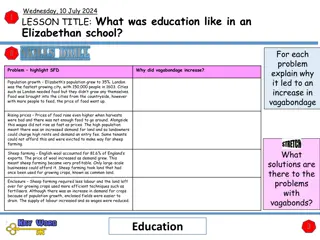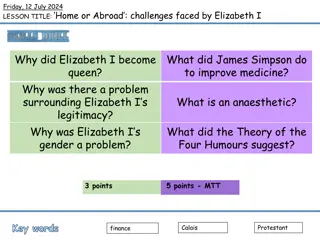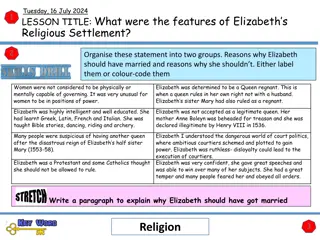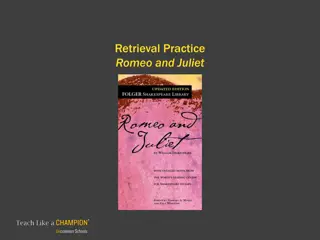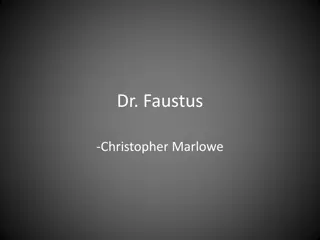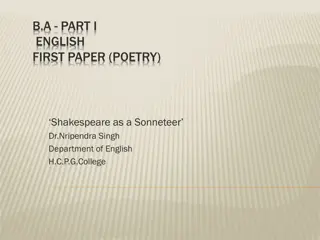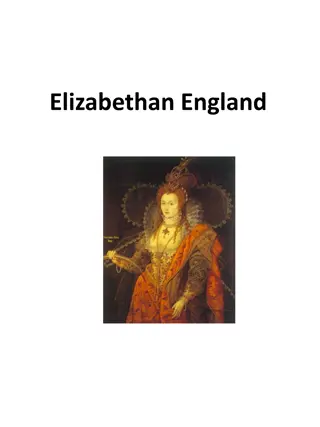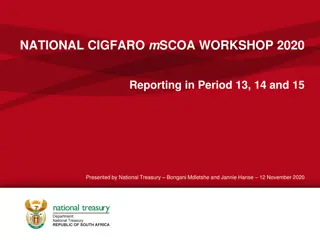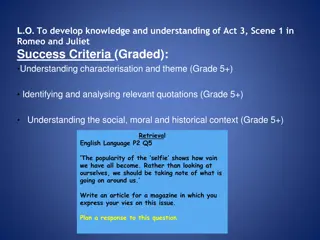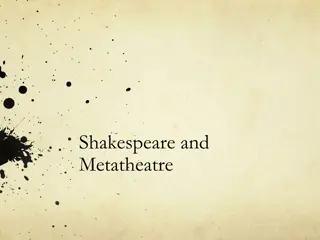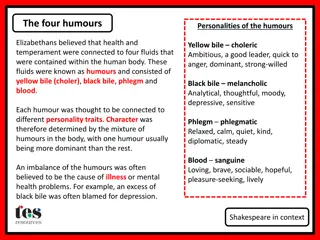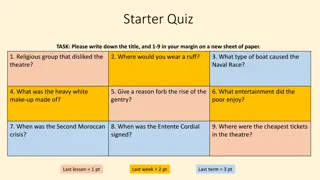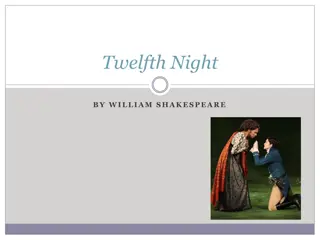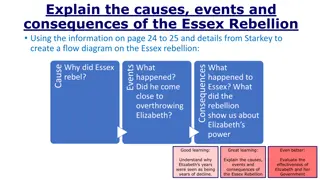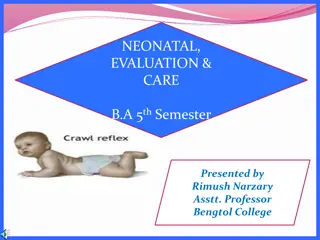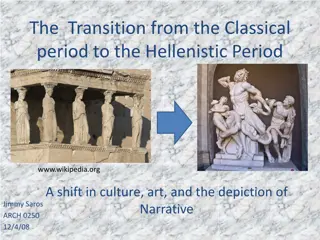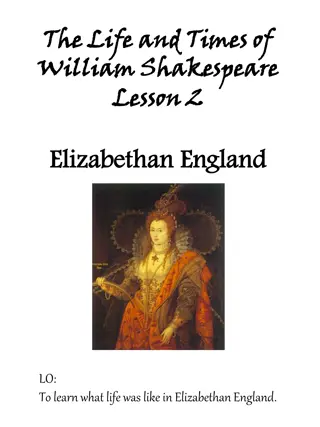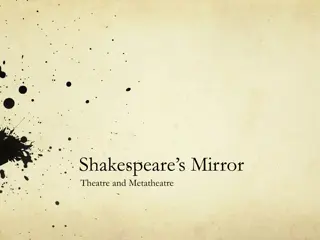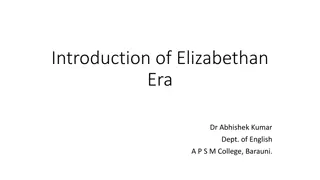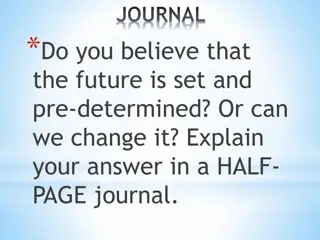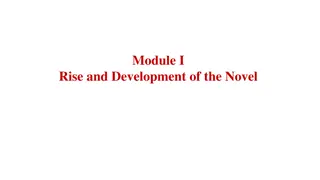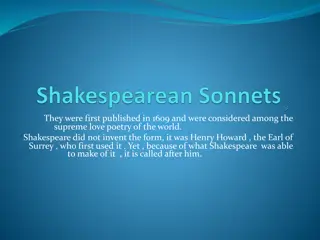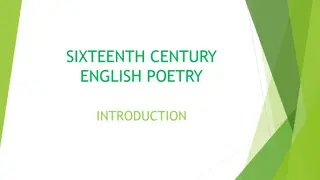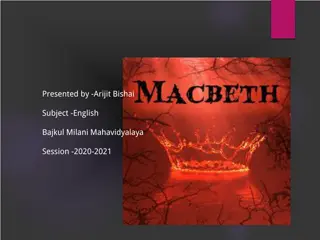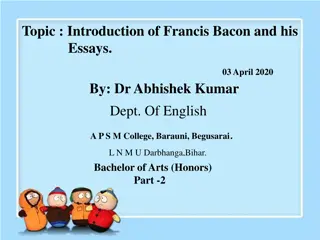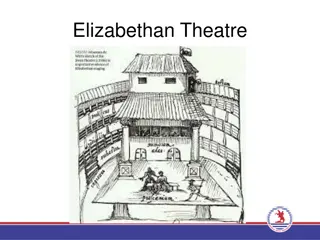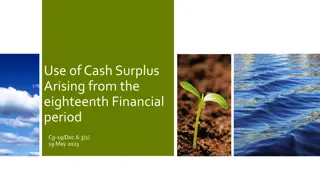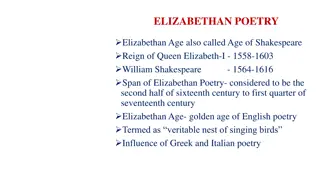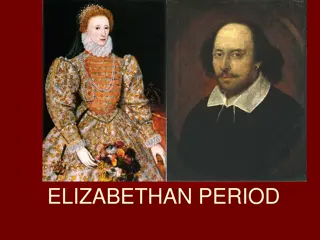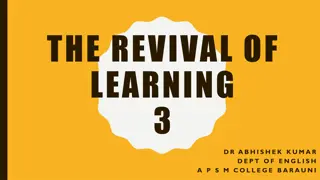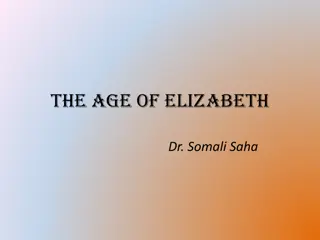Education in Elizabethan England: Understanding the Impact on Vagabondage
Explore the educational landscape of Elizabethan England and its effects on societal issues like vagabondage. The content delves into the challenges faced in schools, the reasons behind the increase in vagabondage, and potential solutions to address these issues.
1 views • 7 slides
Challenges Faced by Queen Elizabeth I and Medical Advancements in History
Explore the challenges encountered by Queen Elizabeth I, including issues with legitimacy, gender, and threats from abroad. Learn about the pivotal role of James Simpson in advancing medicine with the introduction of anaesthetics. Discover the intricacies of Elizabethan government and the notable tr
0 views • 11 slides
Symbols and Facts: Uncovering Shakespeare and Elizabethan Theatre
The analysis begins by exploring the symbols present on the cover of "Romeo and Juliet" such as the sword and roses. It then delves into distinguishing facts from opinions regarding Shakespeare's life, touching on key events like his baptism, marriage, and career. Additionally, it provides insights
1 views • 26 slides
Understanding Elizabeth I's Religious Settlement
Explore the key features and impacts of Elizabeth I's Religious Settlement, including reasons for her decision not to marry, challenges faced, and the success of the settlement. Dive into the historical context of Elizabethan England and how religion played a significant role in shaping the era.
1 views • 11 slides
Shakespearean Retrieval Practice for Students
Explore key facts and insights related to Shakespeare and his works through retrieval practice questions and answers. Test your knowledge on topics like Elizabethan England, sonnets, soliloquies, and literary devices used in Romeo and Juliet. Enhance your understanding of Shakespearean literature in
0 views • 20 slides
Elizabethan Religious Settlement: Unity Amidst Division
Amid religious division in England, Queen Elizabeth I implemented a Religious Settlement in 1559 to unify the country. The settlement, a blend of Protestant and Catholic elements, aimed to maintain peace and prevent rebellions. Elizabeth's strategic compromise pleased most people, though lingering t
0 views • 14 slides
The Literary Characters in Christopher Marlowe's "Dr. Faustus
Christopher Marlowe, a prominent Elizabethan playwright, introduced unforgettable characters in his masterpiece "Dr. Faustus." The play revolves around Faustus, a scholar who sells his soul to the devil in exchange for knowledge and power. Mephostophilis, Faustus' manipulative tormentor, and other c
0 views • 25 slides
Shakespeare's Sonnets: Treasures of Elizabethan Poetry
Shakespeare's sonnets, considered precious pearls of Elizabethan poetry, were written primarily in 1594 under the patronage of the Earl of Southampton. Divided into sections addressing a young man and a Dark Lady, they explore themes of love, beauty, and passion with a unique perspective. Despite be
1 views • 8 slides
Life in Elizabethan England: A Glimpse into Stratford
Explore the vibrant streets of Elizabethan towns like Stratford, where markets thrived and malting was a prominent industry. Discover the grid pattern of streets, the devastating fires, and the Bard Tavern's menu offering a taste of the era's culinary delights. Learn about the town's governance by t
0 views • 18 slides
Comedy Techniques, Social Function, and The Great Chain of Being
Explore the world of comedy, from slapstick and farce to parody and satire. Learn about techniques like dramatic irony and gallows humor that add depth to comedic genres. Discover how the Great Chain of Being shaped Elizabethan beliefs about social order and divine right. From God and angels to tree
0 views • 6 slides
Period Control Guidelines in mSCOA Reporting Workshops 2020
This workshop presented by National Treasury focuses on period control within the mSCOA environment, specifically covering periods 13, 14, and 15. The session addresses requirements for monthly period closures, year-end procedures, corrections in period 15, and AFS submission guidelines for the fina
0 views • 17 slides
Understanding Act 3, Scene 1 in Romeo and Juliet: Themes and Characterization Analysis
Explore the pivotal Act 3, Scene 1 of Romeo and Juliet, delving into character motivations, themes of violence, love, and honor. Analyze key quotations, context, and the impact of the Elizabethan era on character actions and societal norms.
0 views • 18 slides
Shakespeare and Metatheatre: Exploring Elizabethan Theatre Anxiety
Explore the Elizabethan anxiety surrounding the theatre during Shakespeare's time, as highlighted by Philip Stubbes and Sir Philip Sidney. The text delves into concerns about the immoral influence of plays and interludes, portraying a vivid picture of the societal apprehensions towards theater and i
0 views • 38 slides
Beliefs and Influences in Elizabethan Era
Elizabethans believed in the connection between health, temperament, and the four humours - yellow bile, black bile, phlegm, and blood - each associated with specific personality traits. They also linked star signs to body parts and embraced the divine order of the chain of being, respecting the hie
0 views • 6 slides
Sonnet to the Moon by Sir Philip Sidney: A Poetic Ode to Unrequited Love
Born in 1554, Sir Philip Sidney was an Elizabethan courtier, poet, and scholar. "Sonnet to the Moon" from his work "Astrophel and Stella" explores unrequited love through an address to the moon as a sympathetic observer. The poem reflects on the nature of love, beauty, and virtue. With eloquent imag
0 views • 9 slides
Understanding Poverty in Elizabethan England
The poor in Tudor England faced harsh living conditions, with the working poor comprising half of all families. Illiterate and landless, they spent most of their income on basic needs, struggling to survive. The poverty crisis was exacerbated by factors like rising population, inflation, trade issue
0 views • 12 slides
Insights into Shakespeare's "Twelfth Night
Explore the origins of Shakespeare's "Twelfth Night" and its characters in Elizabethan comedy. Delve into the historical context of the play, Shakespeare's life, and the universal appeal of his works in Elizabethan England.
0 views • 16 slides
Understanding the Essex Rebellion and Elizabethan Decline
Explore the causes, events, and consequences of the Essex Rebellion and evaluate its impact on Elizabeth and her government, shedding light on why the final years of Elizabeth's reign were viewed as a period of decline. Delve into societal changes, living standards, and cultural advancements during
0 views • 20 slides
Understanding the Neonatal Period: Care and Evaluation
The neonatal period, also known as the newborn stage, encompasses the first 28 days of a baby’s life, characterized by rapid changes and fragility. This crucial stage requires specialized care, with sub-divisions such as the Period of the Partunate and Period of the Neonate. Commonly, neonates may
0 views • 19 slides
Transition from Classical to Hellenistic Period: Art and Narratives
The evolution from the Classical period to the Hellenistic period in Ancient Greece brought significant shifts in culture, art, and storytelling. Classical art focused on idealized human forms and naturalistic poses, while Hellenistic art embraced more dramatic expressions and emotions. The narrativ
1 views • 23 slides
Insights into Elizabethan Beliefs in Shakespeare's "Hamlet
Act 1, Scene 1 of "Hamlet" introduces characters and Elizabethan beliefs like ghostly encounters, the power of Latin to exorcise spirits, and the constraints of ghosts. Horatio's skepticism evolves, validating ghostly apparitions for the audience. The scene contrasts superstitions, hierarchy, and ed
0 views • 8 slides
Analysis of Staging the Spirit in Shakespearean Drama
Exploring the significance of staging spirits in Elizabethan drama, particularly in Hamlet, sheds light on how Shakespeare cleverly blended Protestant and Catholic viewpoints through characters like Horatio and the ghost. The meeting between Hamlet and his father's spirit marks a pivotal moment in t
0 views • 14 slides
A Comprehensive Guide to Shakespearean Comedies: Tricks and Targets
Explore the world of Shakespearean comedies, delving into their definition, common characteristics, clowns and fools, societal reflections, and the thematic focus on marriage. Discover how these plays balance humor with dark themes, intricate plotlines, mistaken identities, and the role of witty foo
0 views • 8 slides
Life in Elizabethan England: Insights from Stratford Upon Avon
Discover the bustling streets of Elizabethan towns like Stratford, market days, and significant events like fires and civic regulations. Explore the daily life and challenges faced by the residents during this historical era.
0 views • 5 slides
Elizabethan Theatre Concerns and Metatheatre Reflections
The Elizabethan era was marked by concerns about the moral influence of theatres. This period saw the establishment of new buildings like The Theatre and The Curtain. Philip Stubbes criticized the theatregoers' behavior, highlighting perceived vices portrayed in plays. Similarly, Sir Philip Sidney d
0 views • 40 slides
Insight into the Elizabethan Era: Queen Elizabeth's Reign
The Elizabethan Era under Queen Elizabeth's reign marked a transformative period in England, characterized by a shift from darkness to light in various aspects of English life. Queen Elizabeth's dedication to England and her inspiring patriotism brought about unity and national greatness, amidst rel
0 views • 9 slides
The Concept of Fate and Free Will in Elizabethan Worldview
The Elizabethan worldview, shaped by the Great Chain of Being, believed in a predetermined order where everything had a fixed place. This belief in divine hierarchy influenced societal structure and interactions, emphasizing responsibilities and consequences. The idea of disrupting this order leadin
0 views • 31 slides
Evolution of the Novel: From Medieval Romances to Elizabethan Fiction
The evolution of the novel traces back to the Medieval period with the rise of Anglo-Norman romances and the foundation of English prose. The transition through the 15th and 16th centuries saw the emergence of notable works by authors like Chaucer, Caxton, Sidney, and Milton, shaping the novel into
0 views • 20 slides
Exploring Shakespeare's Sonnets: Structure, Themes, and Characters
Shakespeare's sonnets, first published in 1609, are renowned for their depiction of love, beauty, and relationships. Divided into two groups, the sonnets address a young man, a mysterious Dark Lady, and a potential Rival Poet. The intricate structure of the sonnets, with their distinctive rhyme sche
0 views • 8 slides
Dog Handling and Restraint Techniques in Veterinary Practice
Learn about the importance of proper handling and restraining techniques for dogs in veterinary settings, including physical equipment like shock collars, noose leashes, muzzles, and Elizabethan collars. Discover different restraining positions for procedures like venipuncture and understand the pot
0 views • 12 slides
Overview of Sixteenth Century English Poetry and the Renaissance
The introduction provides insights into sixteenth-century English poetry, the Renaissance era, and the defining characteristics of the period. It delves into the intellectual, religious, political, and social contexts of the time, highlighting key figures and movements like the Reformation, the Grea
1 views • 12 slides
Exploring the Intriguing Themes of Shakespeare's Macbeth
Delve into the captivating world of Shakespeare's Macbeth, where themes of power, betrayal, and darkness unfold against a backdrop of historical context. Uncover how the play intertwines with the reign of King James I and reflects the political turmoil and beliefs of the Elizabethan era. From the po
0 views • 12 slides
Sir Francis Bacon: A Prominent Figure in Writing Prose
Sir Francis Bacon (1561-1626) was a prominent figure known for his distinctive writing style during the Elizabethan and Jacobean Ages. His Essays, first published in 1597 and expanded in 1625, cover a wide range of philosophical, political, moral, and social topics. Bacon's legacy as a scientist, ph
0 views • 5 slides
Insights into Elizabethan Tragedy and Classical Influence in Drama
Explore the world of Elizabethan theatre, the influence of classic Latin drama, and the evolution of tragedy from the 16th century to modern times. Learn about the elements of tragedy, the shift in tragic heroes from kings to middle-class individuals, and key concepts like hamartia, nemesis, and cat
0 views • 7 slides
Financial Period Forecast of Cash Surplus and Deficit
Forecasting the use of cash surplus from the eighteenth financial period reveals a starting deficit of CHF 3 million. Factors influencing the surplus include savings from prior obligations, full expenditure in 2023, and limited interest income due to low rates. However, the final surplus amount will
0 views • 5 slides
Insights into Elizabethan Poetry: A Glance at the Golden Age
The Elizabethan Age, also known as the Age of Shakespeare, during Queen Elizabeth I's reign from 1558 to 1603, marked a golden era in English poetry. This period saw a flourishing of poetic forms influenced by Greek and Italian poetry. Major poets like Edmund Spenser, Sir Philip Sidney, and William
0 views • 6 slides
The Flourishing Elizabethan Period in English Literature
The Elizabethan period, characterized by the reign of Queen Elizabeth I, was a time of significant cultural and literary growth in England. This era saw a robust development of drama and lyric poetry, with notable figures like William Shakespeare making their mark. Amidst political turbulence and re
0 views • 20 slides
Carlton Comprehensive Public High School - Today's Class Times & Lunch Special
Today's class times at Carlton Comprehensive Public High School are as follows: Period 1 from 8:55 - 9:58, Period 2 from 10:03 - 11:08, Period 3 from 11:13 - 12:16, Period 4 from 1:05 - 2:08, and Period 5 from 2:13 - 3:16. On Friday, October 19, students can enjoy a single mini breakfast for $4.50,
0 views • 12 slides
The Revival of Learning and King Henry VIII's Reign
The revival of learning during King Henry VIII's reign in England brought about significant changes with the empowerment of national power and the introduction of the Printing Press by William Caxton in 1476. This era saw the separation of England from ecclesiastical bondage, the replacement of old
0 views • 6 slides
The Literary Legacy of Elizabethan Era: Poetry, Drama, and Shakespearean Masterpieces
The Elizabethan Age marked a rich literary period with the emergence of new classicism and romanticism. Notable poets like Spenser, Donne, and Wyatt, along with pre-Shakespearean dramatists, paved the way for the renowned works of William Shakespeare. His poems and plays, ranging from comedies to tr
0 views • 11 slides
